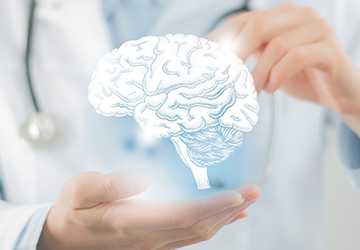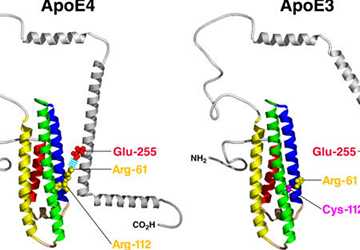Understanding the Early Indicators and Progression of Cognitive Decline
Cognitive decline is a natural part of aging that affects many individuals as they grow older. However, distinguishing between what is considered normal aging and what might be an early sign of more severe conditions, such as dementia or Alzheimer's disease, can be challenging. This article aims to demystify cognitive decline by examining its early indicators, the progression of symptoms, and the underlying biological mechanisms that contribute to these changes.

The Basics of Cognitive Function
Cognitive function encompasses various mental processes, including memory, attention, language, problem-solving, and decision-making. These processes are essential for daily life activities and overall quality of life. As people age, it is common to experience some degree of cognitive decline, which might manifest as occasional forgetfulness or slower problem-solving abilities. However, substantial cognitive decline that significantly disrupts daily functioning is not a normal part of aging. Such issues may indicate the presence of a more serious underlying condition.
Early Signs of Cognitive Impairment
Memory Loss
One of the most common early indicators of cognitive decline is memory loss. This may start as mild forgetfulness, such as misplacing items or forgetting appointments. While occasional memory lapses are normal, frequent and severe memory issues can be a sign of cognitive impairment.
Difficulty in Planning and Problem-Solving
Individuals may find it challenging to follow plans or work with numbers. Tasks that used to be simple, such as managing finances or following a recipe, may become increasingly difficult. This is often an early sign of cognitive decline, as it indicates a reduction in executive function.
Language Problems
Difficulties with language can also be an early warning sign. People may struggle to find the right words or have trouble following conversations. This can manifest through frequent pauses in speech, repetition, or the inability to name common everyday objects.
Disorientation
Becoming disoriented in familiar places or losing track of dates and times are common early signs. This can extend to forgetting how one arrived at a particular location or feeling lost in a previously well-known environment.
Poor Judgment
Another early sign of cognitive decline is poor judgment or decision-making. This could manifest as difficulty in making financial decisions, neglecting personal hygiene, or failing to recognize dangerous situations.
Changes in Mood and Personality
Mood swings, increased irritability, or changes in personality can also be early indicators. Individuals may become more anxious, depressed, or withdrawn, which can affect their social interactions and daily life.
Progression of Cognitive Decline
Mild Cognitive Impairment (MCI)
Mild Cognitive Impairment is often considered the intermediate stage between normal age-related cognitive decline and more severe forms of dementia. Individuals with mild cognitive impairment (MCI) experience more pronounced cognitive difficulties than typically expected for their age, but they are still able to perform most daily tasks independently. However, MCI does heighten the risk of subsequently developing Alzheimer's disease or other forms of dementia.
Early Stage Dementia
In the early stages of dementia, cognitive decline becomes more pronounced. Memory loss worsens, and individuals may struggle with tasks they once found easy. At this stage, loved ones often notice changes in behavior and cognitive function.
Moderate Stage Dementia
During the moderate stage of dementia, individuals require more assistance with daily activities. Symptoms include significant memory loss, confusion about time and place, and difficulty recognizing family and friends. Behavioral changes, such as agitation and aggression, may also become more prominent.
Severe Stage Dementia
In severe dementia, cognitive decline reaches a point where individuals are entirely dependent on others for care. They may lose the ability to communicate, fail to recognize loved ones, and experience significant physical decline, including difficulty walking and swallowing.
Biological Mechanisms Behind Cognitive Decline
Neurodegeneration
Neurodegeneration, the progressive loss of structure or function of neurons, is a primary factor in cognitive decline. Conditions like Alzheimer's disease are characterized by the buildup of amyloid plaques and tau tangles, which disrupt neural communication and lead to cell death.
Vascular Contributions
Vascular issues, such as reduced blood flow to the brain, can also contribute to cognitive decline. Conditions like hypertension, diabetes, and high cholesterol can damage blood vessels, leading to vascular cognitive impairment.
Genetic Factors
Genetics play a role in cognitive decline, with certain genes increasing the risk of developing conditions like Alzheimer's disease. For example, the presence of the APOE ε4 allele is associated with a higher risk of Alzheimer's.

Inflammation
Chronic inflammation in the brain has been linked to cognitive decline. Inflammatory responses can damage neurons and disrupt brain function, contributing to conditions like Alzheimer's disease.
Lifestyle Factors
Lifestyle factors, such as diet, exercise, and social engagement, can significantly impact cognitive health. Maintaining a healthy lifestyle can potentially help delay or mitigate the risk of cognitive decline.
Recognizing and Responding to Cognitive Decline
Regular Check-ups
Regular medical check-ups are crucial for early detection of cognitive decline. Healthcare providers can conduct cognitive assessments and monitor changes over time, allowing for early intervention.
Cognitive Training
Engaging in cognitive training exercises, such as puzzles, memory games, and new learning activities, can help maintain cognitive function and potentially slow down decline.
Healthy Lifestyle Choices
Adopting a healthy lifestyle, including a balanced diet, regular physical activity, and social engagement, can support brain health. Foods rich in antioxidants, omega-3 fatty acids, and vitamins are particularly beneficial.
Medical Interventions
Medications and therapies are available to manage symptoms and slow the progression of cognitive decline. These treatments are more effective when started early, underscoring the importance of early detection.
Support Systems
Building a strong support system, including family, friends, and healthcare professionals, is essential for individuals experiencing cognitive decline. Support groups and counseling can also provide emotional assistance and practical advice.
The Future of Cognitive Health Research
Advances in Diagnostics
Research is ongoing to develop more accurate and earlier diagnostic tools for cognitive decline. Biomarkers, imaging techniques, and genetic testing are promising areas of study that could revolutionize early detection and intervention.
Innovative Treatments
Innovative treatments, including new medications, gene therapies, and neurostimulation techniques, are being explored to slow or reverse cognitive decline. These advancements hold the potential to significantly improve the quality of life for individuals with cognitive impairment.
Preventative Strategies
Preventative strategies focusing on modifiable risk factors, such as lifestyle changes and early intervention, are a key area of research. Understanding how to prevent or delay the onset of cognitive decline could have a profound impact on public health.
Living with Cognitive Decline
Embracing Adaptations
Adapting to cognitive decline involves making practical changes to daily life. Using memory aids, simplifying routines, and creating supportive environments can enhance independence and quality of life.
Staying Connected
Maintaining social connections and staying engaged in community activities can help combat the isolation that often accompanies cognitive decline. Social interaction stimulates cognitive function and provides emotional support.
Seeking Help
It is important to seek help when needed. Professional caregivers, occupational therapists, and support groups offer valuable resources for managing cognitive decline and maintaining well-being.
Final Thoughts
Understanding the early indicators and progression of cognitive decline is crucial for early intervention and effective management. By recognizing the signs, exploring underlying mechanisms, and embracing supportive strategies, individuals and their loved ones can navigate cognitive decline with greater awareness and resilience. Ongoing research and advancements in this field hold promise for improved diagnostics, treatments, and preventative measures, offering hope for a future where cognitive health is better understood and more effectively preserved.



















